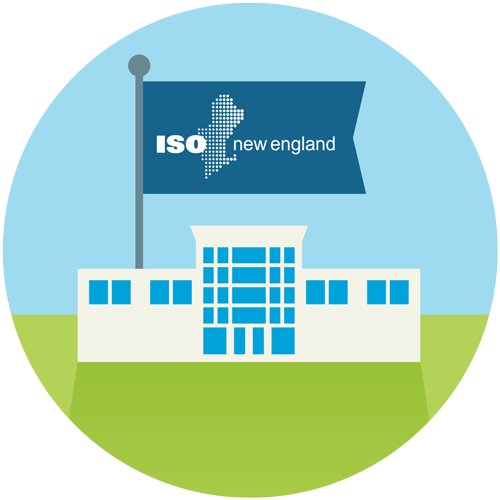Probabilistic Risk and Reliability Research and Development Scientist
Learn More and Apply Now
ISO New England is the not-for-profit, independent system operator responsible for ensuring the safe and reliable flow of electricity in our region and planning for the future of the electric grid. We are at the forefront of New England’s ongoing transition to clean energy.
The clean energy transition will fundamentally change the way we operate our power grid today. Due to uncertainties and faster changes in generating and consuming electric power, the current deterministic way of planning and operating our grid with hard reliability criteria will eventually prove not to be economical or even feasible. A new risk-based, probabilistic planning and operation methodology will need to be developed and adopted to achieve a healthy balance. This position will take on this exciting, forward-looking task to help ISO New England and the industry transition to a new planning and operating paradigm.
This role will be an integral part of the Emerging Technologies team within the Advanced Technology Solutions department. This dynamic group consists of highly intellectual, high-performance R&D engineers, each recognized as an industry subject matter expert in their fields. Internally and externally, the group is known as the "Think Tank" and "Innovation Engine", dedicated to solving real-world problems through innovation.
What we offer you:
- Hybrid work schedule with 2 days/week onsite
- Relocation Assistance
- Base salary plus performance bonus program, professional development and tuition reimbursement, enhanced 401k and financial planning, wellness programs with onsite gym, onsite café with free coffee, flexible work hours, access to business networks & more, all in a stable and supportive work environment!
How you will make an impact:
- Problem Formulation: Understand the current processes and the challenges brought by the clean energy transition, incorporate probabilistic-based reliability risk into the existing planning and operation processes to improve the planning and operation efficiency under the increasing level of uncertainties caused by clean energy transition.
- Engineering Analysis: Analyze grid events and scenarios, provide technical explanations and solutions.
- Application Development: Analyze, design, code and prototype innovative software solutions to complex technical challenges arise from grid operations and planning.
- External Collaboration: Engage in collaborative efforts with academia and leading research organizations such as universities, EPRI, DOE National Labs, PSERC, CURENT, and software/service/platform vendors.
- Technology Exploration and Use Case Development: Stay abreast of emerging technologies, collaborate with business users to develop compelling use cases, create prototypes, and provide innovative solutions to both new and existing challenges.

